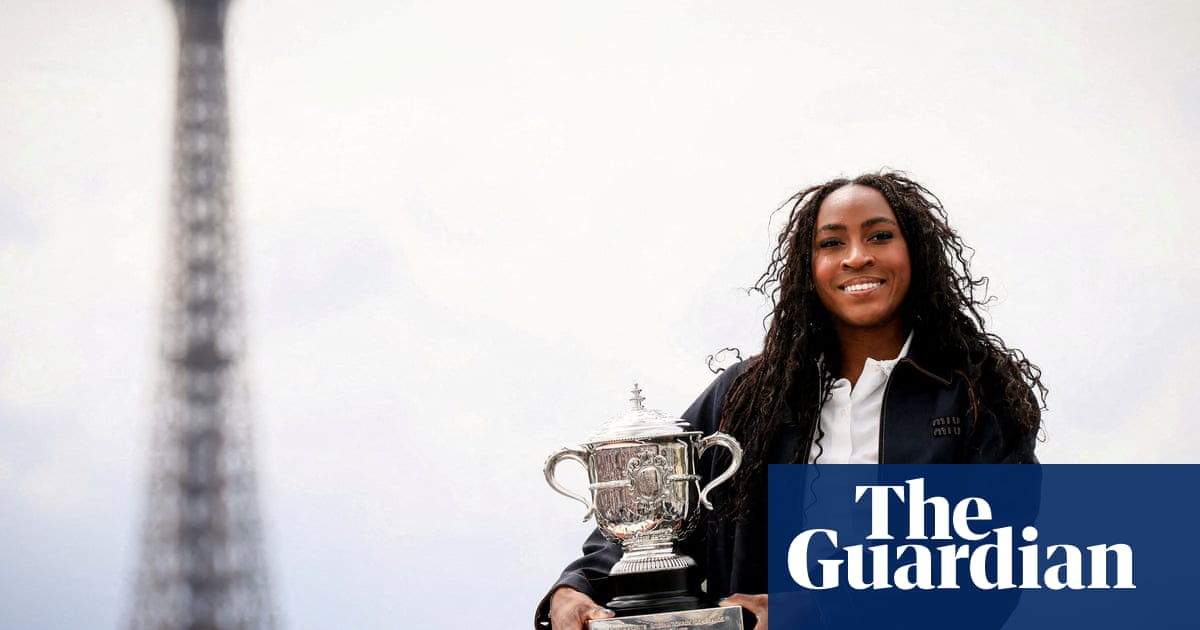Aryna Sabalenka was understandably devastated byhow her first French Open final unfolded. Having established herself as the No 1 player in the world and made such significant improvements to her game and mentality, she playedsome of the best tennisof her career in Paris en route to the final. Sabalenka felt she was ready to tackle all obstacles. With her crushing defeat against Coco Gauff in the French Open final after three difficult sets, she found out she was not.
Her expression of that disappointment, however, was one of her least impressive performances of the year. During the trophy ceremony, with Gauff sitting metres away, Sabalenka’s insistence on repeatedly lamenting her “terrible match” was awkward enough. But in her press conference, after having a short amount of time to cool off, Sabalenka tripled down.
Gauff had won not because of her incredible level, she said, but because of her own mistakes off easy balls. How had her opponent made life difficult for her? By her framed shots magically landing in the court. Had Iga Swiatek reached the final, she concluded, the Pole would have won.
Nothing Sabalenka said was rooted in reality. Over the years, Gauff has built herself into one of the toughest players on the tour. She is the best defensive player in the world, which she pairs with her improvisational skills, intelligence and discipline. Between her phenomenal two-handed backhand, her potent first serve and an improving forehand that is perfectly suited to clay courts with its heavy topspin, Gauff also has more than enough weapons to hold her own against the best in the world. The American makes it incredibly difficult for any opponent to play their best tennis against her, which is why Sabalenka has repeatedly struggled to do so.
Under pressure from the 27-year-old in tough, windy conditions that could have easily exposed her own insecurities behind her serve and forehand, this was an immense fighting performance from Gauff, and an impressive victory. She is the first woman in history to win herfirst two grand slam titlesfrom a set down, with both victories coming against Sabalenka. Gauff is now a multiple grand slam title winner at 21 and ranked No 2 behind the Belarusian. This is no fluke.
After her victory, Gauff reflected on her difficulties before her first grand slam final at Roland Garros in 2022. Before that match, aged 18, she had been consumed by doubts and anxiety, unable to even breathe and questioning whether she would ever be able to handle the occasion. She learned from those lessons and has evolved into a formidable competitor who performs reliably well in the biggest moments. She now has 10 wins and three defeats in finals, a supreme record. Even after losing two WTA 1000 finals in Madrid , Gauff managed to save her best performance for the biggest final of all. Great champions thrive under pressure.
By contrast, Sabalenka is still trying to exorcise old demons. As a three-time grand slam title winner and one of the most successful players of her generation, she has handled herself extremely well in some matches, but under the right circumstances against the wrong opponent she still struggles to contain her emotions. Instead of dismissing the challenge posed by an opponent who has outplayed her in the two biggest matches they have contested, she could learn from the example set by one of her closest rivals.
On the path to this title, inspiration sprung up for Gauff in unexpected places. The night before the final, she was absent-mindedly scrolling on TikTok when a video of the Olympic 200m champion Gabby Thomas appeared. Thomas was explaining to a reporter how she had used written manifestations to aid in her quest for gold.
Sign up toThe Recap
The best of our sports journalism from the past seven days and a heads-up on the weekend’s action
after newsletter promotion
Upon watching the video, an inspired Gauff sprung into action: “I was like: ‘I have this hotel notepad. I’m gonna write it as many times as I can fit on this, and I’m done.’ So I did it that night, and I was just looking at myself in the mirror, and I was telling myself, just trying to seal it in my brain so I had that belief.”
On a small piece of paper, Gauff had written a short sentence eight times: “I will be theFrench Open 2025champion!”
